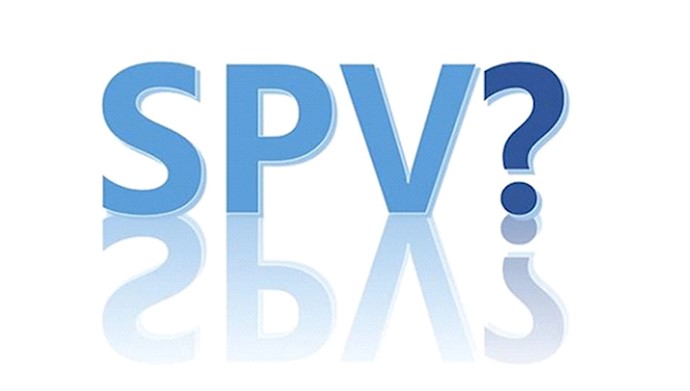Analysis by PMOI/MEK
Jan. 11, 2019 – Iranian foreign ministry spokesperson’s recent expression of disappointment about the European Special Purpose Vehicle has provoked an avalanche of counter-comments from Khamenei’s opposing faction.
“At the beginning, the European Union had good intentions and a positive political will about creating the financial mechanism, but gradually and during the negotiations over the past few months, this feeling became more serious that the European countries face some serious disabilities in implementing the SPV,” foreign ministry spokesman Bahram Qassemi said in an interview with an Iranian official news agency on January 5.
Vatan-e Emrouz, an Iranian newspaper close to Khamenei, writes: “[Bahram Qassemi] considered U.S. dollar’s hegemony and the ties between European and American economies among the major reasons why the SPV implementation is delayed and added: ‘The European Union and even the three European countries that are part of the JCPOA with Iran, are prisoners and hostages to the U.S. economy. Therefore, they have to make a decision for their independence and the continuation of their independent existence.”
On January 7, Sharq newspaper published an article titled “What should be done with the JCPOA” and wrote: “It’s likely that Europe will soon somehow create its promised financial mechanism, although it will be completely symbolic, useless, and ineffective.”
“This inefficiency is mostly rooted in Europe’s weak economy compared to the U.S. and also the legal structures of European markets, and not a desire by European governments to break their commitments.”
In an article titled “2019/2020 budget gamble with SPV?!”, Vatan-e Emrouz challenges Hassan Rouhani’s budget because of its 1.5-million-barrel-per-day oil-export estimation. The article warns that this export estimation relies on the SPV and European imports of Iranian oil, while European support isn’t guaranteed at all.
“The important issue is that the government can’t rely on the SPV at all for selling 1.5 million barrels of oil as it’s evident in the 2019/2020 budget bill. Because neither the solution is clear nor there is transparency about it,” Nasrollah Pejmanfar, an Iranian MP said to Vatan-e Emrouz newspaper.
Pejmanfar also revealed that currently, oil is sold “seven to ten dollars” below market price.
It appears that Rouhani’s gamble on the SPV and European help to neutralize the impact of U.S. sanctions is already lost.
A few days after Donald Trump announced the U.S. will leave the JCPOA back in May 2018, Hassan Rouhani sent his foreign minister Javad Zarif to Brussels to seek help and support from the EU.
But despite verbal support and commitments, especially by EU’s High Representative for Foreign Affairs and Security Policy Frederica Mogherini, until today nothing concrete has materialized.
In fact, the EU just sanctioned a department of the Iranian regime’s Intelligence Ministry for recent terrorist attacks on Europe’s soil. It may be that cool heads who actually care for the long-term security of Europe will prevail eventually.
But in any case, even if Europe finally sets up the SPV, it won’t be much more than a food/medication for oil mechanism.
Abbas Araghchi, Zarif’s political deputy, previously said: “We face a situation where Europeans either don’t want or can’t implement the financial mechanism. In some circles, it is said that the differences between Europe and the U.S. are just a game and they don’t have differences in reality. And we can’t dismiss this line of reasoning easily and we must consider it alongside other possibilities.”
Sources say that the EU has conditioned the implementation of the SPV to Iran’s compliance with the world’s money laundering body, FATF. Passing the four related bills, known as Palermo, has become one of the most controversial topics in Iran over the last few months.
Abdolreza Faraji, the president of the Strategic Council for Iran’s Foreign Affairs, says: “You can say that this issue [FATF] has become sort of an excuse for the Europeans to delay the financial mechanism. If we want to do any amendments to this [FATF bills] and tell them that, it’s better to do it as soon as possible, so that they don’t have this excuse anymore and we can put more pressure on them to implement the mechanism.”
So, here’s how it looks like: In order to receive a symbolic SPV—which isn’t much more than a food for oil mechanism—the Iranian regime needs to pass the necessary laws that brings it in line with international anti money laundering and terrorism financing standards. But passing these laws, will prevent the Iranian regime from supporting its many minions in the region and around the world.
To the Islamic Republic, the export of terrorism and radical Islam, is a defensive mechanism like the medieval crusades to the catholic church in Rom. In the mullahs’ parlance, it’s called “strategic depth.”
In their own words, if the Iranian theocracy leaves the streets of Baghdad, Lebanon, Gaza, and Sanaa, it must defend its crumbling rule on the streets of Tehran.
So, either way, it doesn’t look promising for the ruling mullahs.





